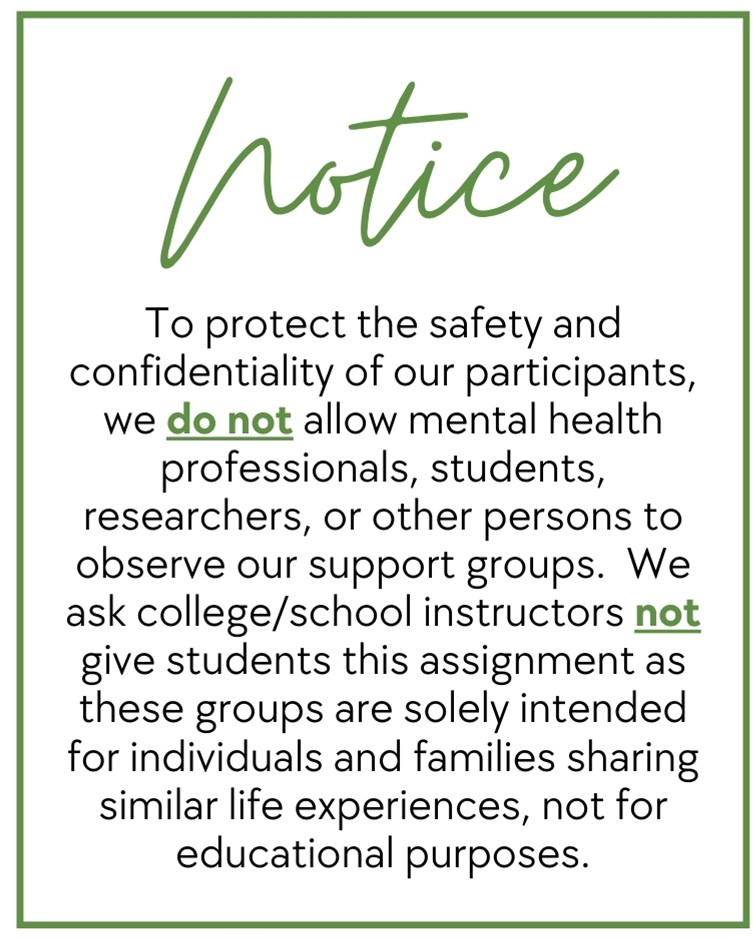Educate
Explore our FREE classes and community presentations designed to educate individuals living with a mental health condition and the family and friends who support them.
Support
We offer 2 FREE support groups: Connection for individuals living with a mental health condition, and Family Support Group for their family members and loved ones.
Advocate
Learn how you can advocate for a friend or family member with a mental health condition.
Educate
Explore our FREE classes and community presentations designed to educate individuals living with a mental health condition and the family and friends who support them.
Support
We offer 2 FREE support groups: Connection for individuals living with a mental health condition, and Family Support Group for their family members and loved ones.
Advocate
Learn how you can advocate for a friend or family member with a mental health condition.
Our weekly support groups are hybrid meetings: In-person and via Zoom
CONNECTION SUPPORT GROUP:
-
- Thursday afternoon (1:00 – 2:30 pm)
- 2nd & 4th Saturday of each month (1:00 – 2:30 pm)
FAMILY SUPPORT GROUP:
-
- Tuesday evening (6:30 – 8:00 pm)
To participate via Zoom: email your contact information to programs@namibillings.org

Our weekly support groups are hybrid meetings: in-person and via Zoom
CONNECTION SUPPORT GROUP:
-
- Thursday afternoon (1:00 – 2:30 pm)
- 2nd & 4th Saturday of each month (1:00 – 2:30 pm)
FAMILY SUPPORT GROUP:
-
- Tuesday evening (6:30 – 8:00 pm)
To participate via Zoom, email your contact information to programs@namibillings.org

ADDRESS: NAMI Billings 955 Broadwater Sq,, Billings, MT 59101
PHONE: (406) 256-2001
OFFICE HOURS: 9:00 am – 1:00 pm, Monday – Friday
For support groups, classes, presentations, and tabling events:
EMAIL: programs@namibillings.org
For general business:
EMAIL: info@namibillings.org








